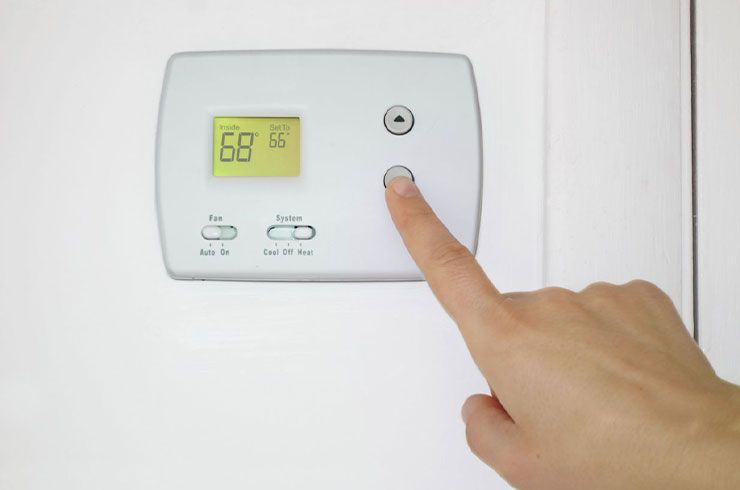
4 Dangers Of Keeping A Thermostat Too Low
Perhaps you’re a snowbird, acclimated to lower temperatures and looking to replicate that in your Florida home, or you’re just an everyday native Floridian, plain old tired of the heat! Regardless, Sea Breeze Heating & Air Conditioning understands how tempting it can be to blast your AC to get yourself through the oppressive heat of the Florida summer. Unfortunately, setting your thermostat to extremely low temperatures when it is hot outside can have disastrous effects on your HVAC system.
Don’t panic just yet—the use of ceiling fans, blinds, and insulating doors and windows can help cool down your home during the worst of the summer heat. While the exact number will vary depending on your HVAC system and the outdoor temperature and humidity levels, our Palm Coast air conditioning company suggests setting your thermostat no lower than 67°F to prevent the following dangers from affecting your AC unit.
Overworking Your HVAC System
It can be nearly impossible to counteract the extreme Florida summer heat entirely with a modern air conditioning unit. Setting more than a 20°F difference between indoor and outdoor temperatures will assign your AC unit to a practically impossible task. Your air conditioner will constantly work to reach this temperature, causing extreme wear and tear on your system. If prolonged, this wear and tear can even damage your AC, resulting in expensive AC repair costs down the road.
High Energy Bills
If you set your thermostat too low, your HVAC system will turn on more often, resulting in an overactive and inefficient cooling cycle. Over time, the costs of running your air conditioner too often will add up, resulting in an abnormally high energy bill.
Our Palm Coast air conditioning contractors recommend setting your thermostat to a higher temperature during the summer months to minimize costs associated with overactive AC units. Instead, our experts suggest lowering the temperature inside your home by using ceiling fans and preserving energy by closing blinds and doors throughout your house.
High Humidity Levels
Setting your thermostat too low when it is hot and humid outside can result in exceedingly high humidity levels inside your home. Cold air holds water less readily than warm air, meaning it takes a smaller concentration of water vapor in the air to make it feel humid when it’s cold. Not only is humidity uncomfortable, but it is also bad for your home. Humidity can damage your floors, walls, furniture, and electronics if allowed to fester for long enough.
If you struggle with high humidity levels in your home during the summer, don’t set your thermostat too low and use dehumidifiers to take excess moisture out of the air. If humidity is out of control, call our Palm Coast AC repair company to ensure that your AC is not malfunctioning. Contact us for more information on our AC repair services or to schedule a consultation today!
Frozen Evaporator Coils
Especially on days with high humidity levels, setting your thermostat too low can overwork your AC unit, causing your indoor evaporator coils to freeze. If left unchecked, frozen evaporator coils can spread to the outdoor condenser coils, increasing wear and tear on your unit, decreasing cooling efficiency, and eventually damaging your HVAC system. If your air conditioner is exhibiting any of the following signs, your low thermostat setting may be freezing your evaporator coils.
- AC not blowing air
- AC blowing warm air
- Water leaks near outdoor unit
- Visible ice on your air conditioning unit
If you suspect that your evaporator coils are frozen, turn off your thermostat and call an air conditioning repair company as soon as possible. Contact Sea Breeze Heating & Air Conditioning to learn more about our comprehensive AC inspection and repair services today!